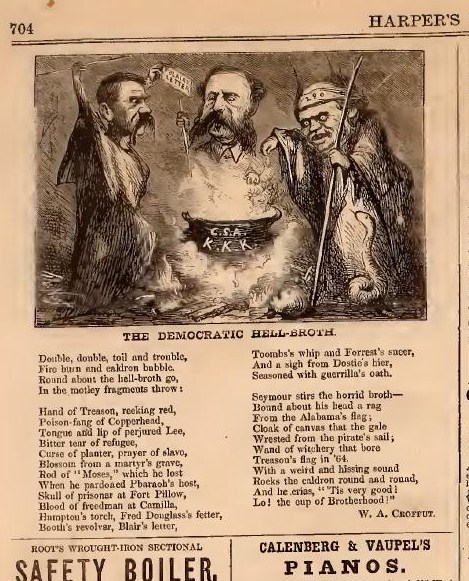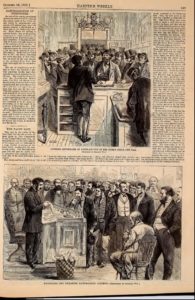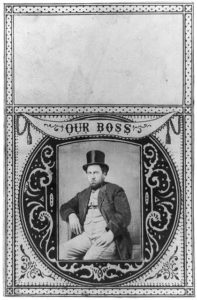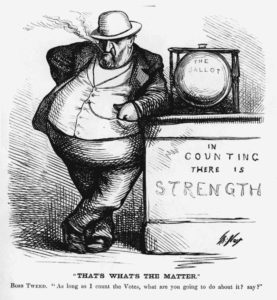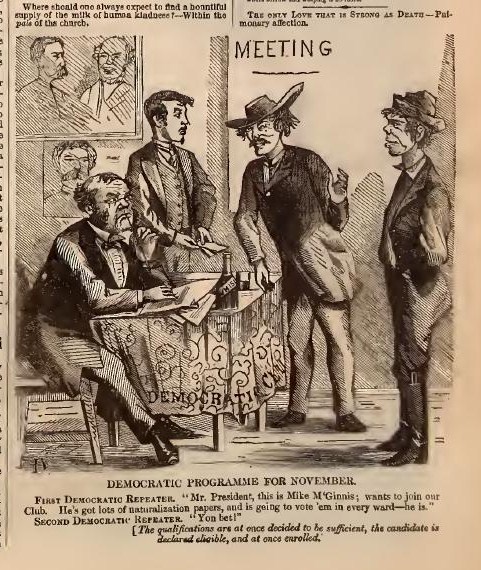
The New York Times November 4, 1868
On November 3, 1868 Republican candidate Ulysses S. Grant was elected President of the United States. He garnered about 300,000 more votes than his Democratic challenger Horatio Seymour. In the electoral college he won 214 votes compared to 80 for Mr. Seymour. It didn’t take well-known abolitionist Gerrit Smith long to congratulate General Grant. On November 4th he knocked off a letter over 2600 words long. Mr. Smith identified “pride of race” as one of America’s biggest problems and seemed to trace white mistreatment of Native Americans to the early white New England settlers, who were a little too enamored with the Jewish religion, “for never was there a people in whom, so much as in the Jews, the pride of race was controlling, contemptuous and cruel.” It was even worse for the blacks because the Jewish part of Christianity authorized whites to enslave them. In paragraph ten Gerrit Smith wrote that “The chief thing for which I took up my pen was to remind you of the deep desire of many hundred thousands, who voted for you, to have your Administration signalized by its cordial recognition of the equal rights of all races of men;” universal suffrage was a vital component to equal rights. Mr. Smith then reviewed General Grant’s public life and seemed to be comforted that his correspondent was able to improve his thinking, especially about human rights: “For, like the martyred and immortal Lincoln, you are above the stupidity of not being able to change, and above the weakness of being ashamed to change.” Gerrit Smith closed letter by hoping that the new administration’s matra would be “A Man’s a Man.”
From the Library of Congress:
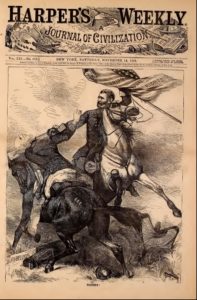
Let us have Peace!
Peterboro November 4th 1868.
PRESIDENT GRANT,
Honored and Dear Sir,
Pardon this letter. Pardon my irrepressible impatience to write it. I learn, to-day, that you are made President of the United States: and I cannot wait, even until to-morrow, to say to you what my whole soul urges me to say to you.
Before the Election, your exhortation to your countrymen was: “Let us have Peace!” To this exhortation, as sublime as it is concise, their reply, in the voice of the Election, is also: “Let us have Peace!” What you then asked of them, they now ask of you. What you then called on them to do, they have now put it in your power to do, and now call on you to do.
What, however, is the Peace, which you asked for, and which, in turn, you are asked for? Is it of a superficial and evanescent character? Or is it that deep and enduring Peace, whose foundations are in nothing short of nature and reason, justice and religion? The pride of race, of rank, of wealth has ever stood in the way of realizing this true Peace. The pride of race is by far the greatest of these obstacles, and it is of this one that I would speak to you.
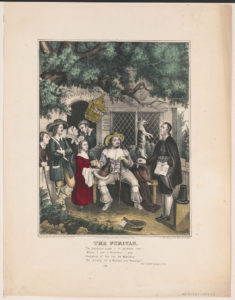
a little too Jewish in New England?
Our New England Fathers brought much religion with them to America. Unhappily, it was more of the Jewish than of the Christian type:—for never was there a people in whom, so much as in the Jews, the pride of race was controlling, contemptuous and cruel. These Fathers saw in the American tribes only another set of heathen: and the laws of the Jews in dealing with their heathen became (more, it is true, in spirit than in letter) the laws for dealing with ours. By these laws the most learned and influential of the New England Divines insisted that the family of even King Philip should be adjudged—of that King Philip, who wept when he heard that an Indian had shed the blood of a white man. The wife of Philip was sold into slavery, and into a foreign land. These Judaized teachers and judges, instead of entering upon the case with human hearts, pored upon the bloodiest pages of the Old Testament; and, instead of imbuing themselves with the spirit of that Blessed One to whom the Samaritan was as dear as the Jew, and in whose religion “there is neither Greek nor Jew, circumcision nor uncircumcision, Barbarian, Scythian, bond nor free,” set their revenge all ablaze by gazing at the worst examples of revenge.
There has never been a thorough Peace between our white man and our red man. The lack of it is, doubtless, to be traced, more or less, to this mistake of the white man in regarding himself as of the heaven-loved and heaven-favored race, and the red man as of the heaven-hated and heaven-cursed race. Perhaps, we are never to have Peace with our Indians. Perhaps, no however-just treatment of them on our part could avail to regain their confidence. There is but too much reason to fear that this confidence is lost forever; and that, in their utter distrust and undying hatred of us, they will continue to dash themselves against our superior power, until little or nothing shall remain of them. How different from all this would it have been, had we and our ancestors, instead of indulging this pride of race, cordially recognized the equality of all men in the sight of their Common Father!
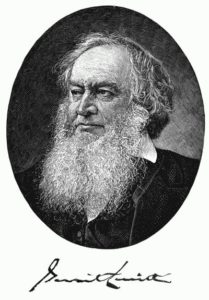
diagnosis red, white, and black
Even more proudly and cruelly have we borne ourselves toward the black man than toward the red man. Very extensively has the belief obtained amongst us, that the Jewish part of our religion authorized us to make not only “a servant of servants” but property of him, and to strip him as bare of rights as is any kind of property. In that monstrous side of our religion we found, or fancied we found, that God had laid peculiarly heavy curses upon the black man.
Alas, what sorrow has come to our country from the indulgence of this murderous caste-spirit toward the black man! For many generations he has wet with his tears and blood the soil he has tilled. At length, came the War, which was the natural, if not indeed necessary, culmination of our guilty nation’s sufferings—a War costing many thousands of millions of dollars and filling several hundred thousands of graves. This War is not yet ended—and, mainly, for the reason that the indulgence of this hatred of race is not yet ended. So rife and so ruling is this hatred, that murder is committed in our nation every day, if not, indeed, every hour.
Because of this hatred between races, how full of bloody contentions, for centuries, was Spain!— and how disastrous to her in all her subsequent history was the final victory of the Spaniard over the Moor! How Greeks and Turks have hated and wasted each other! And how severe and protracted has been the oppression of the Irish because they were Irish instead of English! Until the Irish and English shall know each other as men rather than as Irishmen and Englishmen, there cannot be a sound and permanent Peace between them. The treatment of the Chinese immigrants upon our Western coast comes, also, of this pride of race. How cruel and infamous that treatment!
We, often, hear even men of culture declare that, in a War between their own and another race, they would take the side of their own, be it or be it not the side of justice. How base is such a declaration! On the other hand, how beautiful is the following of justice whithersoever it leads, and the honoring of it in whatever variety or section of our grand common humanity it may be found.

The New York Times November 5, 1868

The New York Times November 6, 1868
The chief thing for which I took up my pen was to remind you of the deep desire of many hundred thousands, who voted for you, to have your Administration signalized by its cordial recognition of the equal rights of all races of men; by its downright and effective assertion that no man loses rights by being born in a skin of one color instead of another; and by its faithful, warm-hearted and successful endeavors to rid our country of this low and brutal antagonism of races. What your Administration shall be in other respects is of comparatively little consequence. Confident, however, may all be that, if right in this most comprehensive and vital respect, it will be right in every other essential one. No wonder that the Democratic Party was in favor of robbing the Nation’s creditors. The Party, that can rob a race of all the rights of manhood, and build and maintain itself on such robbery, is, of course, capable of every other robbery, because every other is infinitely less than this sweeping one. I said that this Party was in favor of robbery—for it is, now, a Party of the past only. It was not killed by the vote of yesterday. It was killed when slavery was killed. In losing slavery, it lost its tap-root—its indispensable nourishment. Its partial resurrection was solely because of the prospect of the re-animation of slavery. The prospect of this re-animation was blighted yesterday; and this Pro-Slavery Democratic Party has, therefore, fallen back into its grave, never again to rise, nor even attempt to rise, from it. Many a “Democratic Party” there may, hereafter, be in our country—but no one of them will be a Pro-Slavery Party, and, therefore, no one of them will be like this Party, which was killed several years ago, and, which lost yesterday all hope of a resurrection. Yesterday’s vote has left no room for a Pro-Slavery Party, either now or hereafter. Most emphatically true is this, if the measures and influence of your Administration shall be withering and fatal to the caste-spirit—to that spirit, which, more than all things else, begets and fosters slavery.
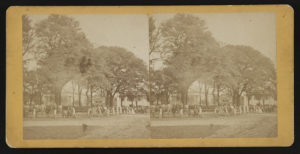
Grant banner visible, possibly in Savannah, Georgia
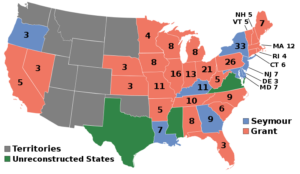
South not solid, Georgia went Democratic
Entirely reasonable is the confidence that your Administration, if it maintain the equal rights of all our races of men, will not fail of responding to all the essential claims of justice. Of no wrong to the Nation’s creditors will it be guilty. For universal suffrage it will be unyielding—not merely because, as the right to life, liberty and property is natural, so participation in the choice of those, at whose official disposal these possessions so largely lie, must also be a natural right; but because all have seen that nothing short of the ballot in the hands of those, who have recently emerged from slavery, can save them from being thrust back into it. The Governments, which President Johnson set up in the South, recognized no political rights in black men: and, straightway, these Governments set to work to re-enslave them. It matters not, as regards my argument, that this new slavery was not literal chattel slavery. It had none of the alleviations incident to chattel-slavery, and was, on the whole, more oppressive and cruel.
![The operations of the registration laws and Negro [suffr]age in the South / from sketches by James E. Taylor. ( Illus. in: Frank Leslie's illustrated newspaper, 1867 Nov. 30, pp. 168-169.)](https://www.bluegrayreview.com/wp-content/uploads/2018/11/Maconregistrationn-300x197.jpg)
Macon, Georgia: registering to vote
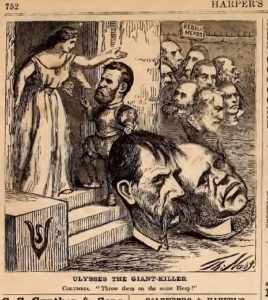
“saving a Nation”
I saw, in your letter of August 1863, that you had not, in your early life, made human rights one of your studies. Nevertheless, that, in the high office to which you were chosen yesterday, you will prove yourself to be their enlightened, impartial and successful defender, I cannot doubt. For, like the martyred and immortal Lincoln, you are above the stupidity of not being able to change, and above the weakness of being ashamed to change. Indeed, whilst, in your letter to which I have referred, you say that formerly you had not been “an abolitionist—not even what could be called anti-slavery”— you do, in the same letter, acknowledge yourself to have advanced so far as to insist on the abolition of slavery, and on there being no Peace, which permits the existence of slavery. Moreover, in another of your letters written in the same month, you reach the altitude of declaring that “Human liberty is the only foundation of human government.” Better still is your recent declaration to Mr. Colfax that, in your Presidency, “we shall have the strong arm of the Executive, representing the will and majesty of a mighty people, declaring and insuring to every citizen, black or white, rich or poor, be he humble or exalted, the safeguard of the Nation, and protecting him from every wrong with the shield of our national strength.” But, best of all to prove your discernment and appreciation of human rights and your fidelity to them was your acceptance of your nomination and of the righteous principles of the Republican Party. The grandest of all these principles is not No Slavery —but Universal Suffrage: —for the ballot is the mightiest protection of its possessor not only from slavery but from every other wrong. That universal suffrage is one of the principles of the Republican Party is manifest from its being set up in the District of Columbia. Had this Party as clear a Constitutional right to set up in the loyal States, all those States would, also, have been blessed with it. The acting of Congress on the question of suffrage in the disloyal States was under the Law of War—was the exercise of the right of the conqueror.
Nor in your early life did you take the lead in saving a Nation. But, when the time came for you to do so, you did so; and did so successfully, triumphantly. Nor, in early life, had you heard the call to help drive out of your country this mean and murderous antagonism of races. Since then, however, you have heard it, and have been obeying it. And, now, safely can your country rely on your wisdom and justice for what more she needs at your hands. These qualities, so eminent in you, have faithfully and fully met all the claims, which your country has, in quick succession, laid upon you. Not less faithfully and fully will they meet all her remaining claims upon you. And well, too, may she trust that He, who has brought you into the Chief Magistracy “for such a time as this”, will both show yon your true work, and give you head, heart and hand to do it.
![The great American tanner / Thos. Worth. sketch ; on stone by [John] Cameron. ([New York] : Published by Currier & Ives, 152 Nassau St. N.Y., c1868. ; LOC: https://www.loc.gov/item/2003674582/)](https://www.bluegrayreview.com/wp-content/uploads/2018/11/09018v-300x221.jpg)
mission accomplished
![The operations of the registration laws and Negro [suffr]age in the South / from sketches by James E. Taylor. (Illus. in: Frank Leslie's illustrated newspaper, 1867 Nov. 30, pp. 168-169.; LOC: https://www.loc.gov/item/96513248/)](https://www.bluegrayreview.com/wp-content/uploads/2018/11/3c16587v-300x149.jpg)
“A Man’s a Man.”
With the highest respect for your virtues and the deepest gratitude for your services to our beloved country,
GERRIT SMITH.
150 years later Gerrit Smith still has a presence. According to he October 7, 2018 issue of The Post Standard (Syracuse, NY; page A2) a new play, “Possessing Harriet” is actually set in Gerrit Smith’s house. In October 1839 the enslaved Harriet Powell escaped from her Mississippi masters while they were visiting Syracuse. Harriet’s ride on the Underground Railroad eventually brought her to Peterboro. While at the Smith home Harriet met Gerrit’s cousin Elizabeth Cady Stanton. The play is a fictionalized account of their conversation. Harriet’s masters were in hot pursuit, but she eventually made it to Kingston, Ontario and freedom. You can read more at syracuse.com.
Gerrit Smith’s estate, a National Historic Landmark, and the National Abolition Hall of Fame and Museum are both located in Peterboro and can be visited.
In a 2016 book Jack Kelly discusses the Millerites, a Christian group that developed during the Second Great Awakening and that believed that the date of Christ’s Second Coming was predictable and relatively imminent. That date became something of a moving target, but in the fall of 1844 more and more followers firmly believed that the last day would be October 22nd. “None entertained a doubt that the pending cataclysm was real. Gerrit Smith, a prominent upstate New York abolitionist and Millerite, wrote that ‘we have just had family worship – perhaps for the last time.'”[]
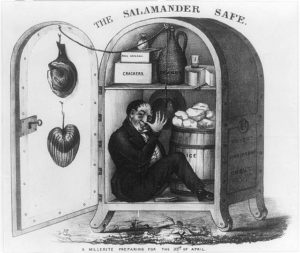
prepare like an Egyptian
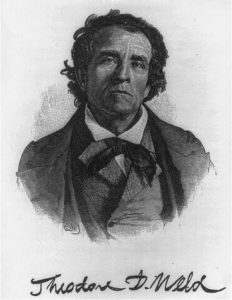
early abolitionist
I thought it was ironic that Gerrit Smith began his letter to the president-elect by criticizing Jews. In 1862 General Grant issued General Order No. 11, which expelled all the Jews from his military district. President Lincoln overrode Grant, explaining through General Henry Halleck “that while he had no objection to expelling dishonest traders, the order ‘proscribed a whole class, some of whom are fighting in our ranks.'”[] According to the Wikipedia link, during the 1868 campaign Grant claimed he never even read the order – he just signed the piece of paper a subordinate put in front of him.
I was surprised when I read that Gerrit Smith was a Millerite. I don’t think of modern progressives of being publicly Christian (it’s probably my stereotypical thinking), but Jack Kelly also introduced me to Theodore Dwight Weld, who became “a disciple of the famous evangelist evangelist Charles Finney” while a student at Hamilton College (Gerrit Smith was an alumnus) in upstate New York. He later studied at Lane Theological Seminary in Cincinnati. In 1833,
he became the leader of the so-called “Lane Rebels,” a group of students who determined to engage in free discussion, including the topic of slavery, holding a series of slavery debates over 18 days in 1834, resulting in a decision to support abolitionism. The group also pledged to help the 1500 free blacks in Cincinnati. When the school’s board of directors, including president Lyman Beecher prohibited them from discussing slavery, about 80% of the students left, most of them enrolling at the new Oberlin Collegiate Institute (later renamed Oberlin College). Weld however, left his studies in 1834 to become an agent for the American Anti-Slavery Society, recruiting and training people to work for the cause, making converts of James G. Birney, Harriet Beecher Stowe, and Henry Ward Beecher. Weld became one of the leaders of the antislavery movement …
In 1838 Theodore Weld co-authored American Slavery As It Is: Testimony of a Thousand Witnesses, which was the inspiration for Uncle Tom’s cabin
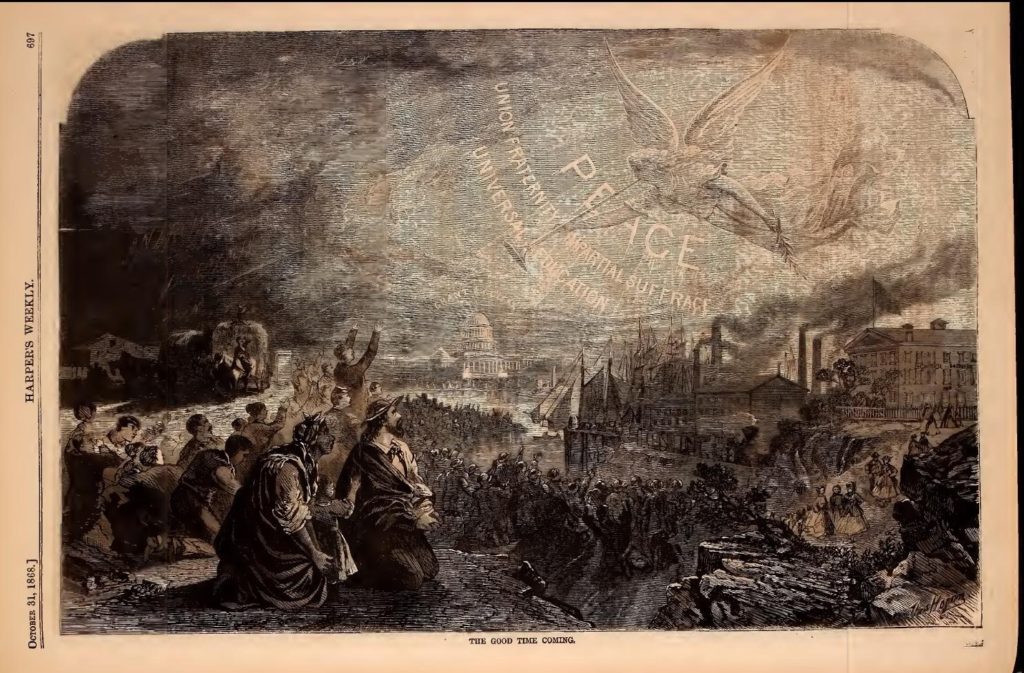
heaven on earth?
All the Harper’s Weekly images can be found at the Internet Archive. The portrait of Gerrit Smith comes from Captains of Industry or, Men of Business Who Did Something Besides Making Money at Project Gutenberg. Check out Wikipedia for AndyHogan14’s map of the 1868 Electoral college vote. From the Library of Congress:
Puritan; November 1, 1868 in Savannah; the illustrations from Frank Leslie’s illustrated newspaper, 1867 Nov. 30, pp. 168-169 – registration in Macon, integrated jury next to “Freedmen discharged for voting the Radical ticket”; tanner cartoon; Millerite; Theodore Weld.
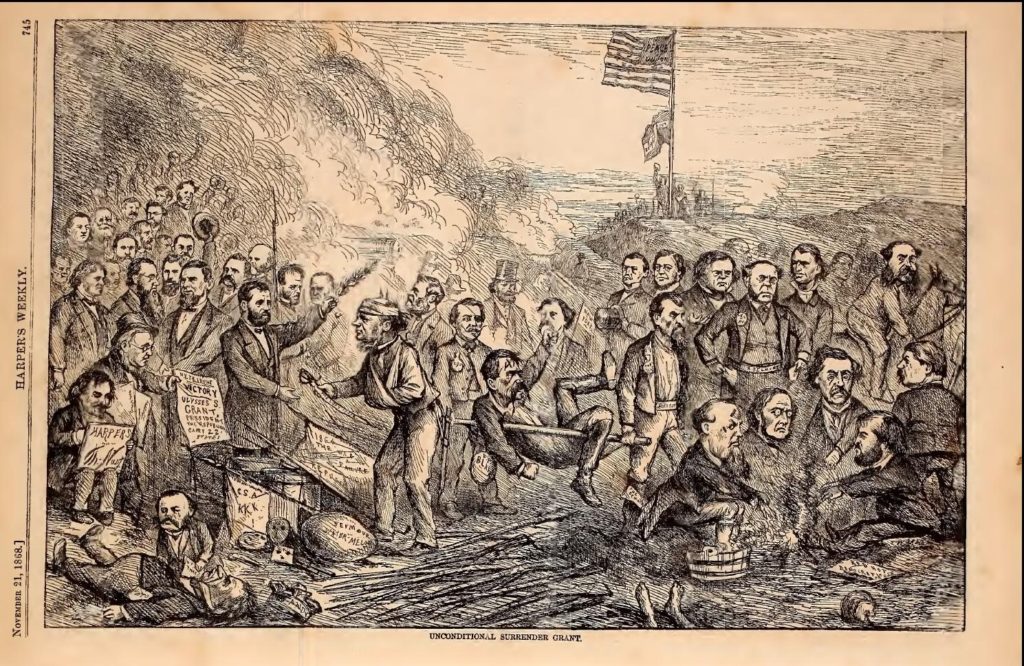
“charitable judgment and generous treatment of the South.”
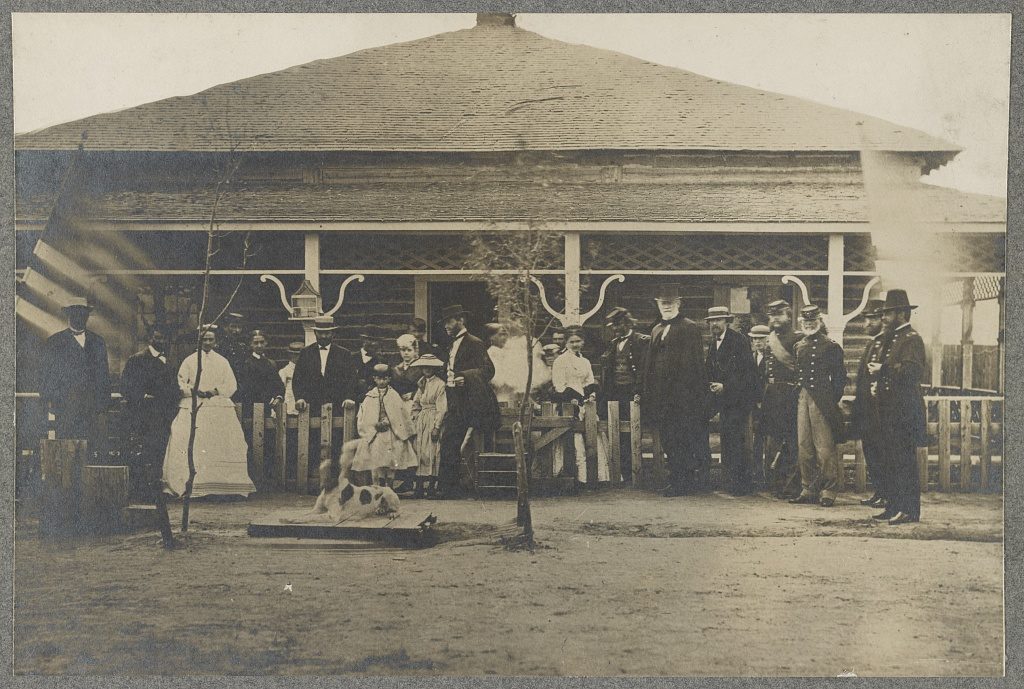

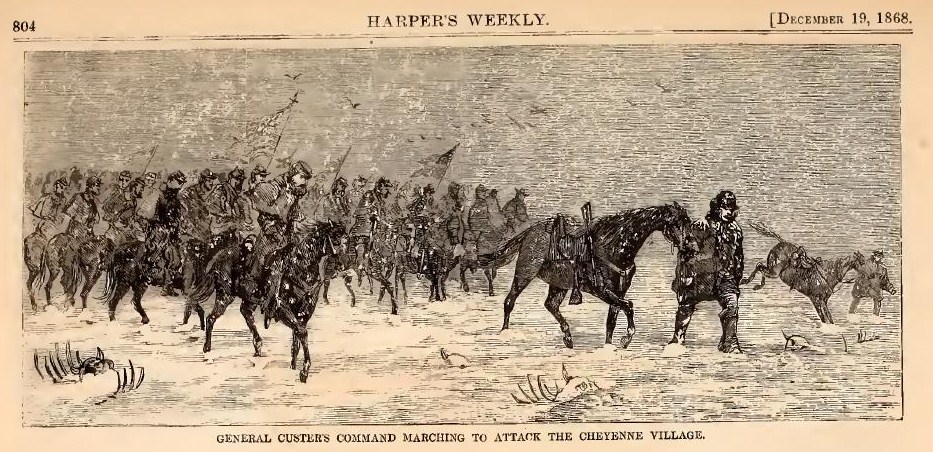
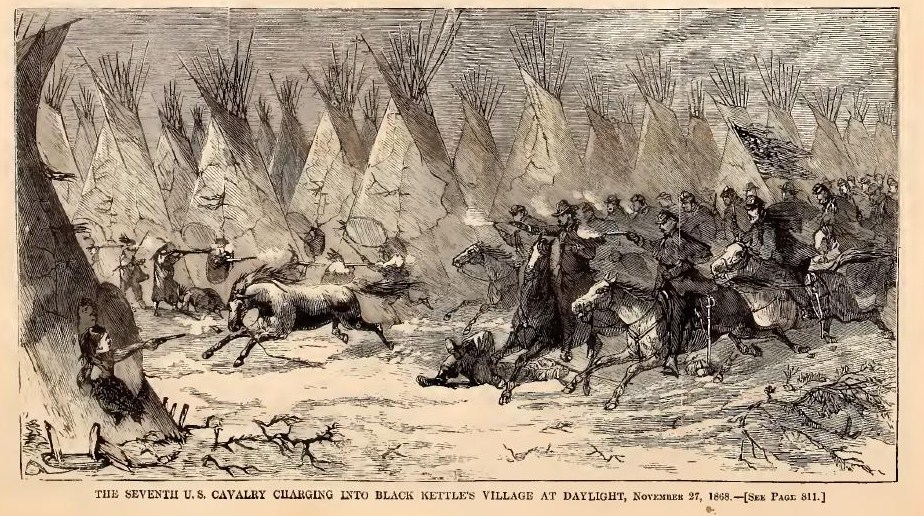
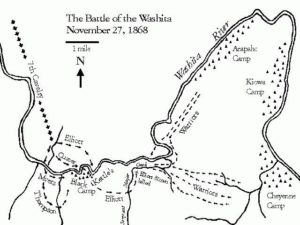
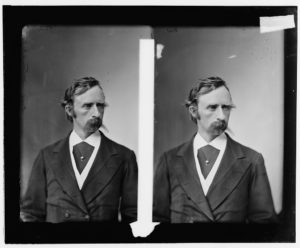
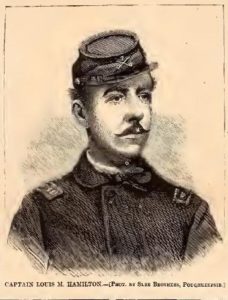
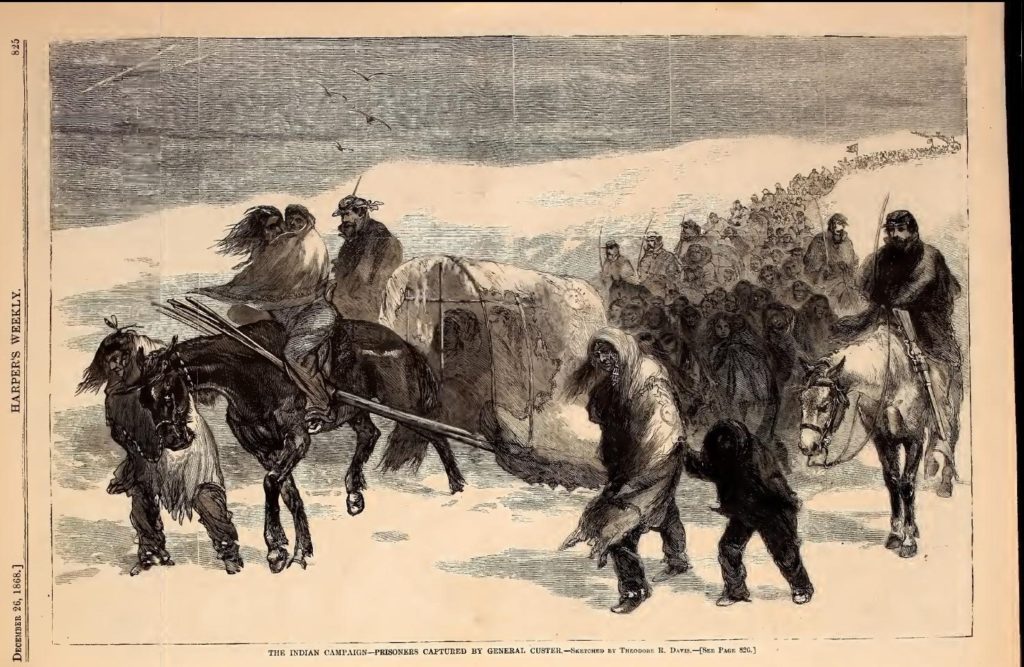
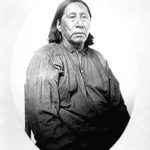
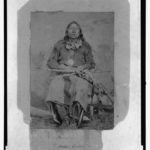
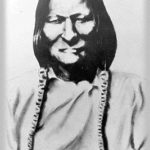
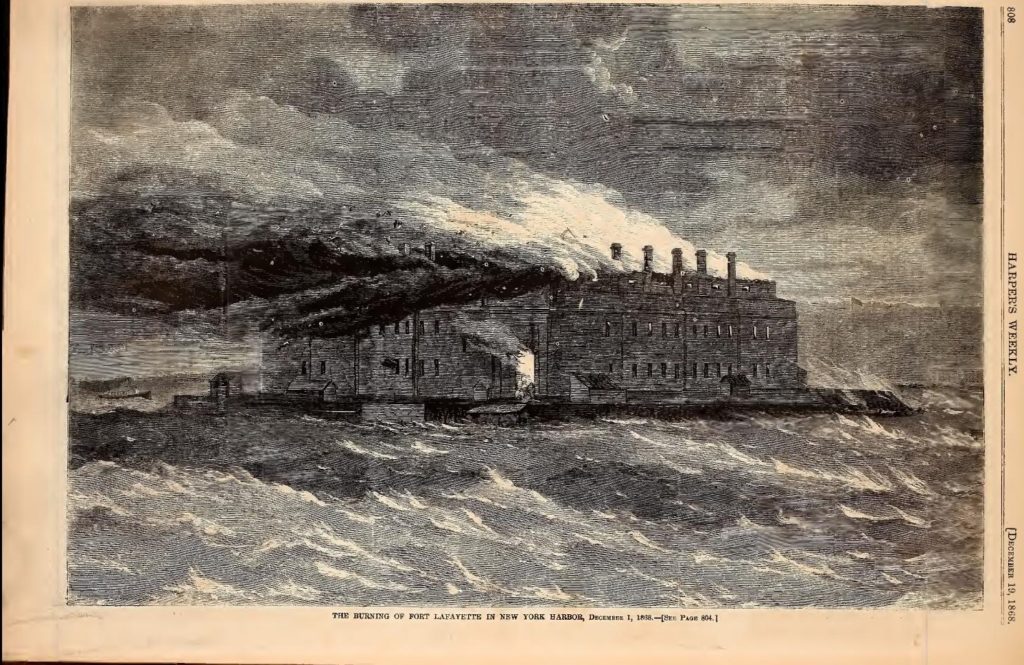
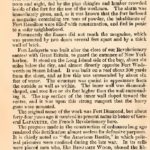
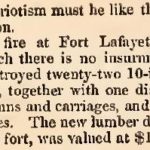
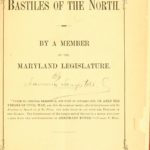
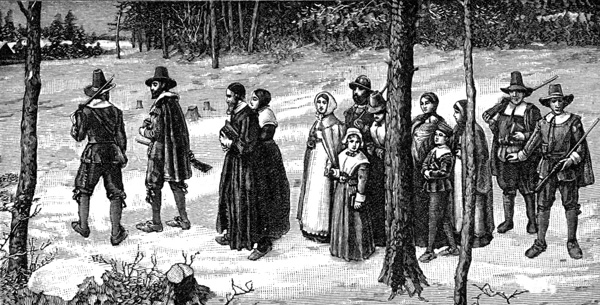
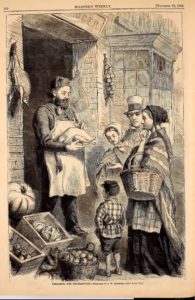
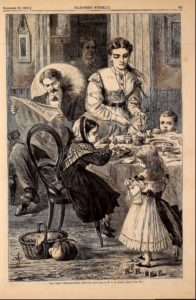
![Plymouth Church,--Rev. Henry Ward Beecher, Orange Street, Brooklyn / Stacy 691 B'way. ([New York City, N.Y.] : [George Stacy], [1863] ; LOC: https://www.loc.gov/item/2016653293/)](https://www.bluegrayreview.com/wp-content/uploads/2018/11/51455v-197x300.jpg)
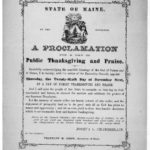
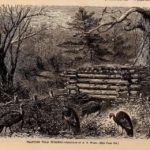
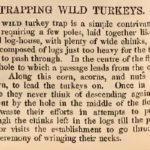
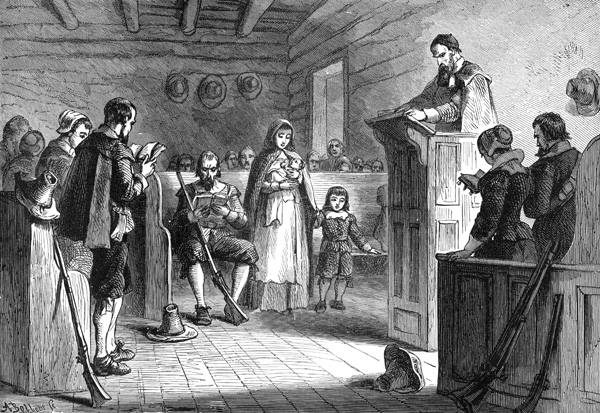
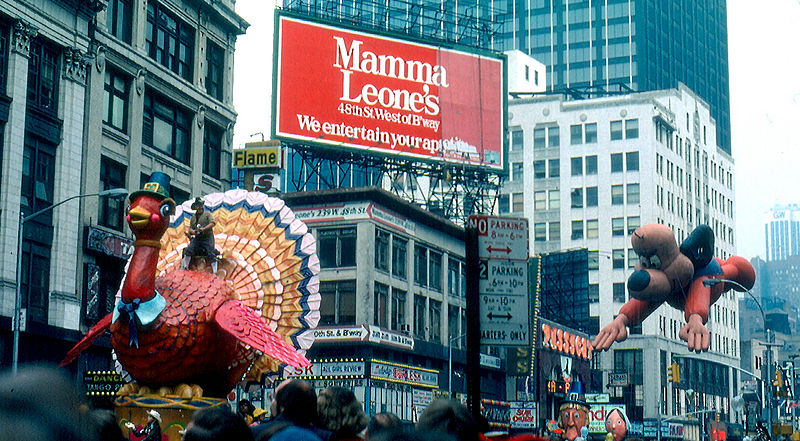
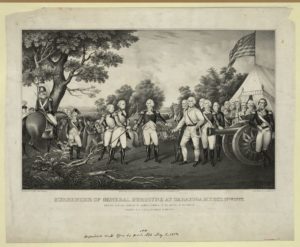
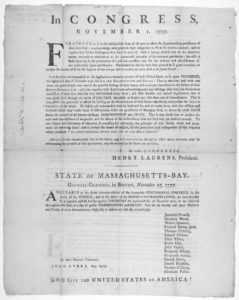
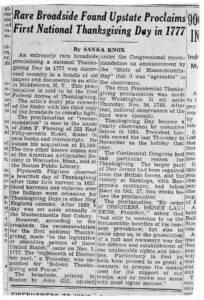
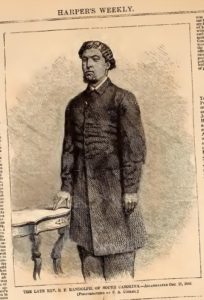
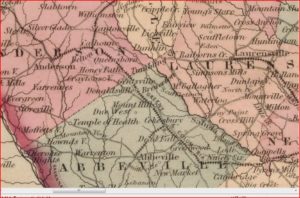
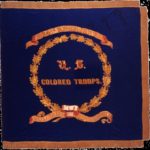
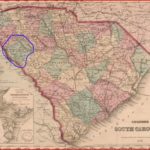
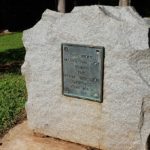
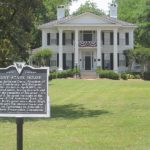
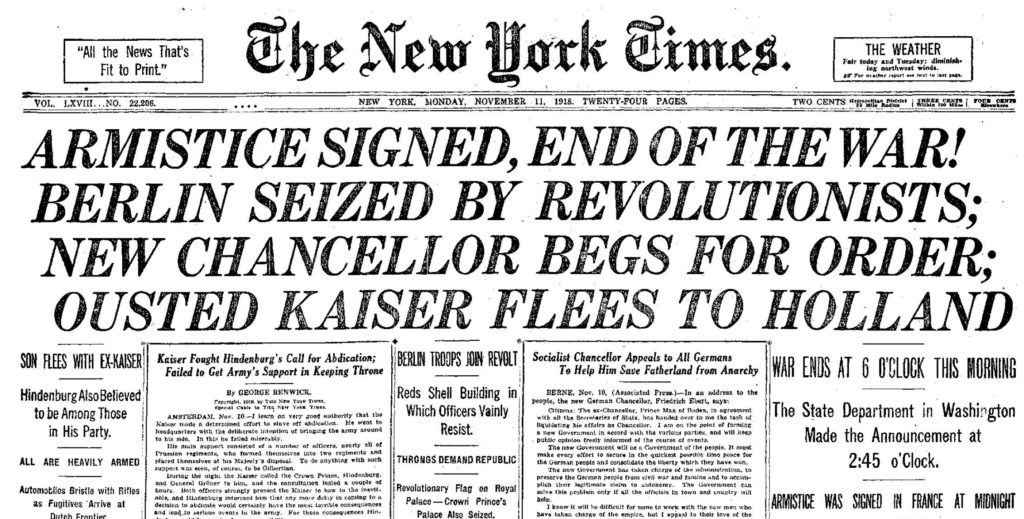

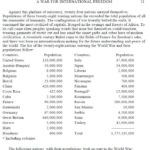
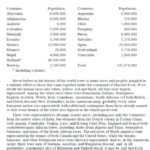
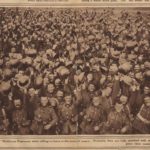
![In Belleau Wood cemetery, France, marble cross marks grave of last American killed in action - Hugh McKenna, killed Armistice day ([New York] [World Wide Photos, Inc.], 9-21-39 [21 September 1939] )LOC: https://www.loc.gov/item/2018646058/)](https://www.bluegrayreview.com/wp-content/uploads/2018/11/55643v-236x300.jpg)


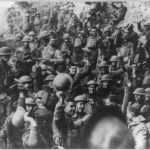
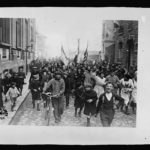
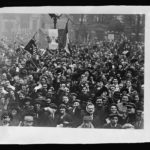
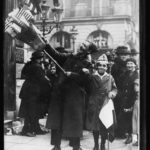
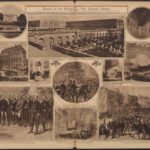
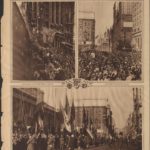
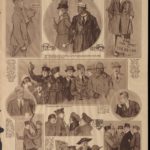
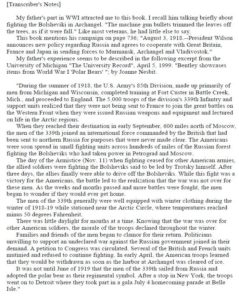
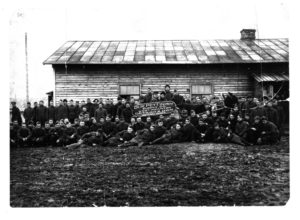
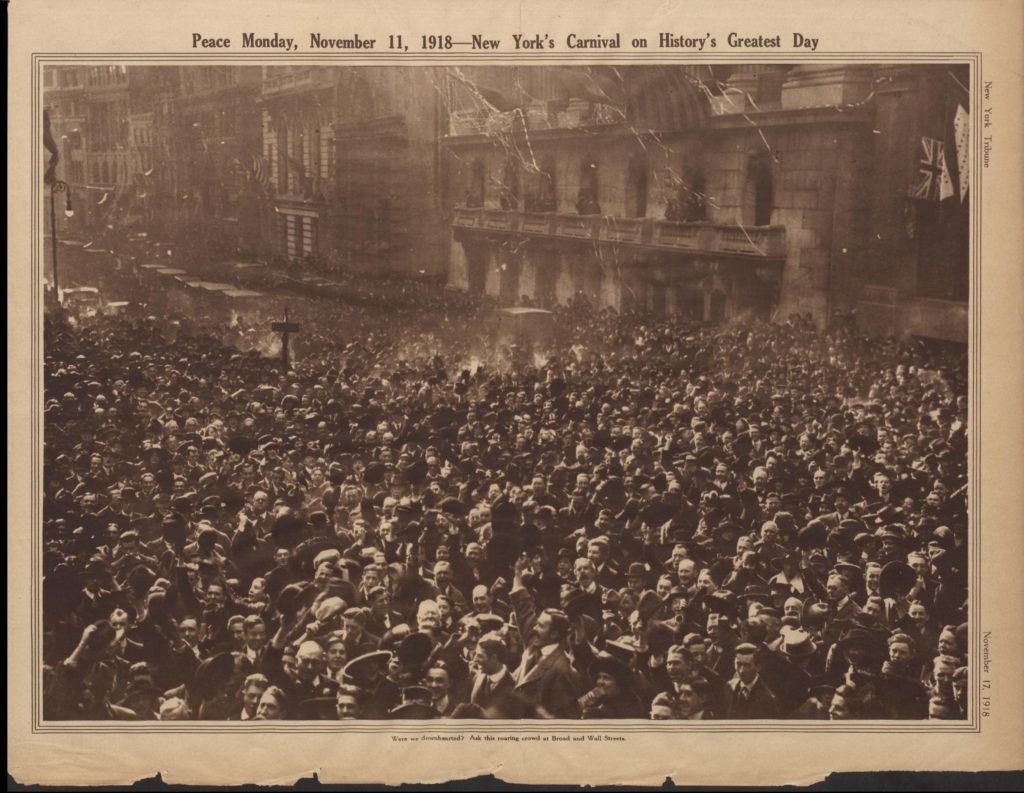







![The operations of the registration laws and Negro [suffr]age in the South / from sketches by James E. Taylor. ( Illus. in: Frank Leslie's illustrated newspaper, 1867 Nov. 30, pp. 168-169.)](https://www.bluegrayreview.com/wp-content/uploads/2018/11/Maconregistrationn-300x197.jpg)

![The great American tanner / Thos. Worth. sketch ; on stone by [John] Cameron. ([New York] : Published by Currier & Ives, 152 Nassau St. N.Y., c1868. ; LOC: https://www.loc.gov/item/2003674582/)](https://www.bluegrayreview.com/wp-content/uploads/2018/11/09018v-300x221.jpg)
![The operations of the registration laws and Negro [suffr]age in the South / from sketches by James E. Taylor. (Illus. in: Frank Leslie's illustrated newspaper, 1867 Nov. 30, pp. 168-169.; LOC: https://www.loc.gov/item/96513248/)](https://www.bluegrayreview.com/wp-content/uploads/2018/11/3c16587v-300x149.jpg)




![The party of freedom and its candidates. The duty of the colored voter. Published by the Union Republican congressional committee, Washington, D. C. Washington, D. C. Printed at the office of the Great Republic [1868]. (LOC: https://www.loc.gov/resource/rbpe.2050260b/)](https://www.bluegrayreview.com/wp-content/uploads/2018/11/colored_duty1-185x300.jpg)
![The party of freedom and its candidates. The duty of the colored voter. Published by the Union Republican congressional committee, Washington, D. C. Washington, D. C. Printed at the office of the Great Republic [1868]. (LOC: https://www.loc.gov/resource/rbpe.2050260b/)](https://www.bluegrayreview.com/wp-content/uploads/2018/11/colored_duty2-150x150.jpg)
![The party of freedom and its candidates. The duty of the colored voter. Published by the Union Republican congressional committee, Washington, D. C. Washington, D. C. Printed at the office of the Great Republic [1868]. AC LOC: https://www.loc.gov/resource/rbpe.2050260b)](https://www.bluegrayreview.com/wp-content/uploads/2018/11/colored_duty3-150x150.jpg)
![The party of freedom and its candidates. The duty of the colored voter. Published by the Union Republican congressional committee, Washington, D. C. Washington, D. C. Printed at the office of the Great Republic [1868]. (LOC: https://www.loc.gov/resource/rbpe.2050260b)](https://www.bluegrayreview.com/wp-content/uploads/2018/11/colored_duty4-150x150.jpg)
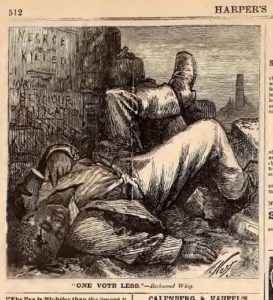
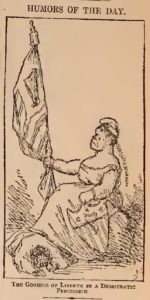
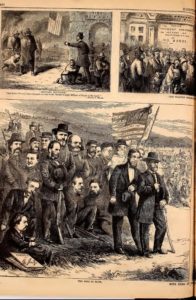
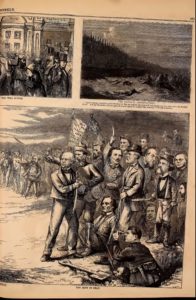
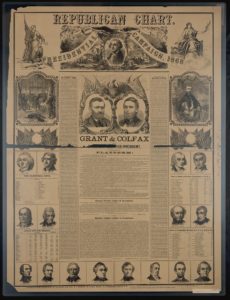
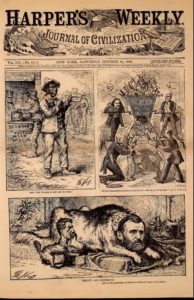
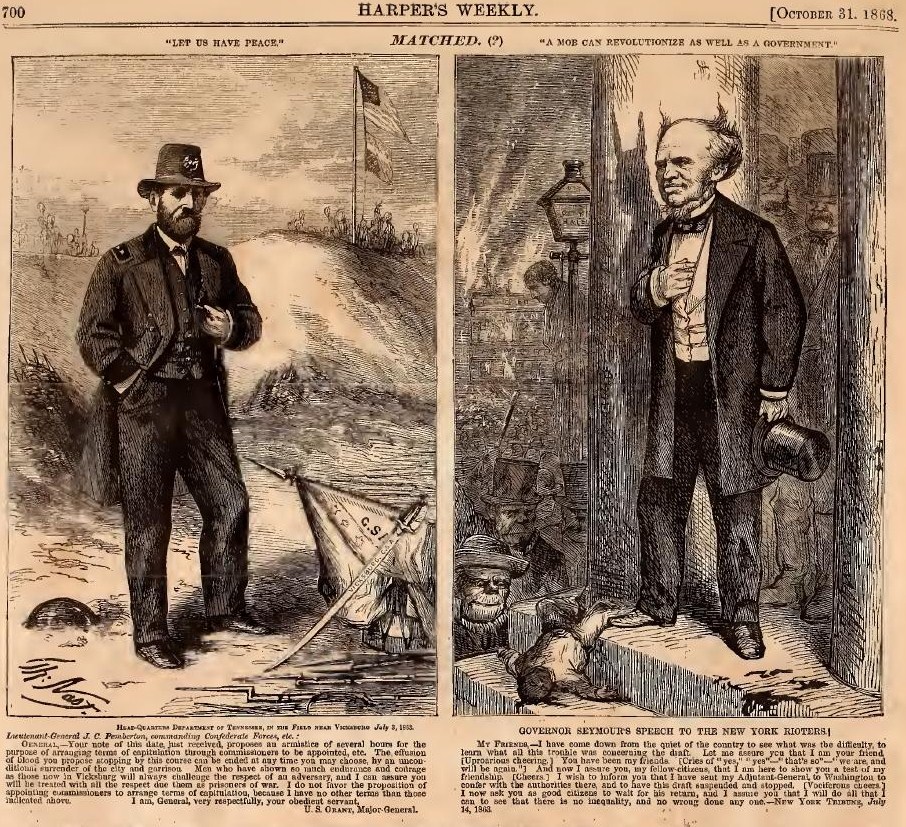

![Gen. John A. Dix (Hartford, Conn. : Taylor & Huntington, No. 2 State St., [between 1861 and 1865]; LOC: https://www.loc.gov/item/2011661066/)](https://www.bluegrayreview.com/wp-content/uploads/2018/10/1s02844v-300x175.jpg)
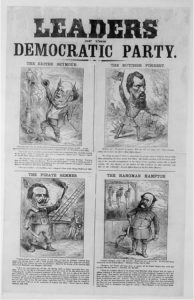
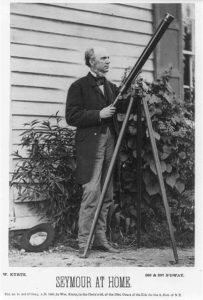
![[Major General George B. McClellan in uniform] / Cartes de visite by Silsbee, Case & Co., photographic artists ; Case & Getchell from Dec. 3, 1862. (LOC: https://www.loc.gov/item/2016649613/)](https://www.bluegrayreview.com/wp-content/uploads/2018/10/41848v-186x300.jpg)
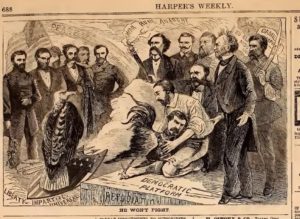

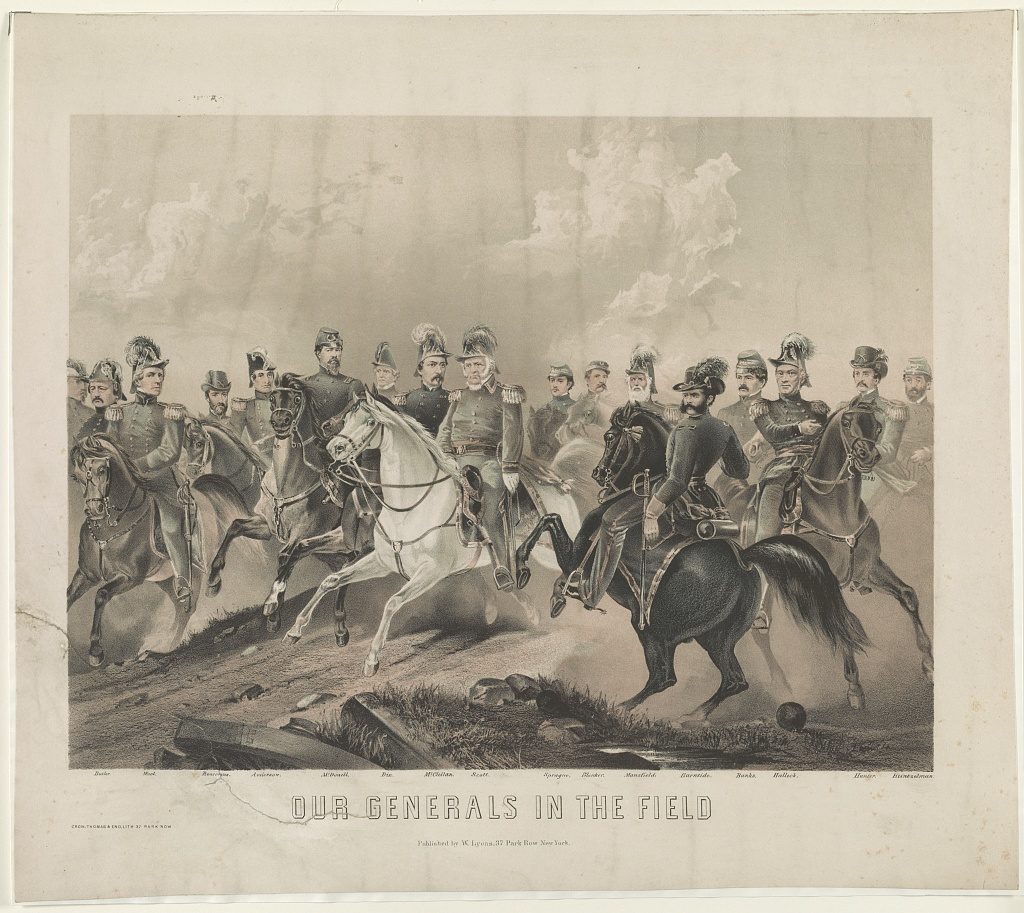
![Gen. John A. Dix (Hartford, Conn. : Taylor & Huntington, No. 2 State St., [between 1861 and 1865] ; LOC: https://www.loc.gov/item/2011661066/)](https://www.bluegrayreview.com/wp-content/uploads/2018/10/2s02844v-180x300.jpg)
![[Gen. U.S. Grant campaign button for 1868 presidential election] (1868; LOC: https://www.loc.gov/item/2011661490/)](https://www.bluegrayreview.com/wp-content/uploads/2018/10/32108v-300x300.jpg)
